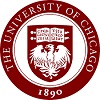Job Description
The University of Chicago’s Master’s Program in Computational and Applied Mathematics (MCAM) offers a comprehensive up-to-date education in the main areas of computational and applied mathematics such as data analysis, dynamical systems, linear algebra, machine learning, numerical methods, optimization, partial differential equations, and applied probability.
The master’s program is hosted by the Committee on Computational and Applied Mathematics (CCAM), with renowned faculty from the departments of statistics, mathematics, computer science, and many other departments in the Physical Sciences Division. Beyond their expertise in CAM, many faculty members are actively engaged in interdisciplinary research areas such as geophysical and medical imaging, genetics, mathematical finance and econometrics, machine learning, scientific computation, and more.
MCAM students choose among the many introductory graduate courses offered to the CCAM PhD students. These courses cover traditional CAM physics-based modeling fields (dynamical systems, PDE) as well as more recent data-based modeling areas (data assimilation, machine learning) and their interactions, e.g., in uncertainty quantification. Master’s students are fully integrated in the academic activities of the department alongside the PhD students.
Students are expected to pass at least nine classes to be awarded the master’s degree, and full-time students can generally complete the requirements in nine months or more. Students interested in applying to a PhD in CAM or related fields, at the University of Chicago or elsewhere, are encouraged to pursue the option of a master’s degree with thesis, which includes writing a thesis paper in addition to the above requirements, and is ideally completed over two years.


